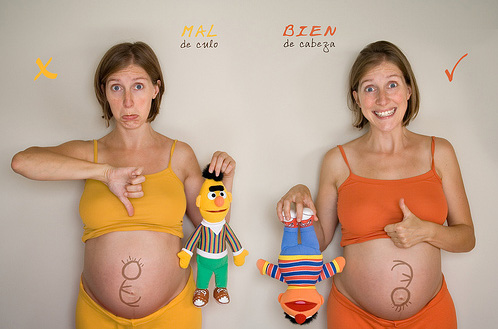Though the Obama Administration has cut large portions of abstinence-only sex education from the 2010 budget, advocates of the movement are gearing up to continue their fight for unfulfilling, guilt-ridden sex for one and all. Remember when Creationism became “Intelligent Design”?
According to the Huffington Post, the National Abstinence Education Association (NAEA) has refocused its energies by hiring PR companies to market the movement as scientifically based and holistic.
A great deal of this involves modeling what the comprehensive sex education curricula and proponents have been doing so well, namely language and tools. For example, despite being well-known for presenting false and misleading information about condoms and contraception, abstinence-only groups are now holding that they’re medically accurate in their willingness to finally talk about contraception.
Instead of replying with an unnecessarily snarky admonishment, let me first state that, like any issue regarding a woman’s body, waiting for love, marriage or even just a bus, before having sex is not an issue open to ridicule—at least not for dignified adults. Sexual decisions are private decisions that must not be legislated upon by religious lobbying groups (a direct First Amendment violation) or dictated by the federal government. However, the underlying message of abstinence-only sexual education and other virginity cult movements, such as the loathsome True Love Waits organization, is that not only is sexual experimentation by both sexes prior to marriage morally wrong, but that the onus of virginity preservation lies on young women and, gulp, their fathers…
This is most evident in what has become a popular trend, particularly in Colorado Springs, Colorado, headquarters of Focus on the Family, and a politically conservative, religiously fundamentalist enclave in an otherwise generally liberal state. Teenage women are encouraged to pledge their virginities to their fathers, at least until marriage, and are often rewarded with a fancy Purity Ball—often at Colorado Springs’ swanky Broadmoor Hotel—and a sparkling ring to wear on their left ring finger. The fact that these girls are asked to “vow” something so private to their fathers, and not their mothers or their selves, is particularly telling. Abstinence-only education, no matter how “scientific” it is becoming, is still in practice a mode of patriarchy.
And, while many public intellectuals have openly and notoriously debunked the Intelligent Design movement as Creationism in the Academy’s clothing, little is being said about the damage that the abstinence-only movement poses for teenagers. Specifically, the question that no one seems to be asking is what this ideology means for a young woman’s psychological health. When an individual’s entire worth is dependent upon her pristine and uncharted vagina, and then eventually transferred to her identity as her husband’s wife, a young woman’s existence becomes indelibly bound to others, particularly the various men in her life. When it does come time for a her to enter into a sexual relationship with her husband—presuming she makes it to her wedding night as an “unmarred” virgin—she has never learned the art of self-fulfillment, either sexually or emotionally. She has placed so much energy on meeting others’ standards that she has never learned to ask what it is she wants and expects from her own sexual experience. Sexuality becomes the realm of the masculine, and women are meant to lie still and shut up about it–keep in mind, however, that “lying still” may alternatively displease one’s partner, so a virgin best have an encyclopedic (but not practical) knowledge of sexual acrobatics, you know, just in case. If, as advocates suggest, abstinence is, indeed, the “only form of safe sex,” they are entirely remiss on the gravely dangerous emotional affects of this movement.
“True Love,” after all, exists only when one truly loves oneself, independent of coercion or social mores, and with a fully informed and balanced sense of dignity. True love doesn’t “wait” for others; it’s available for anyone willing to claim it.




